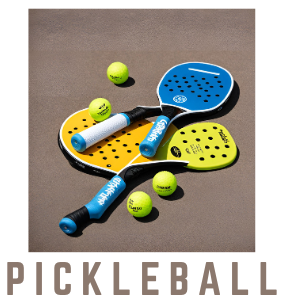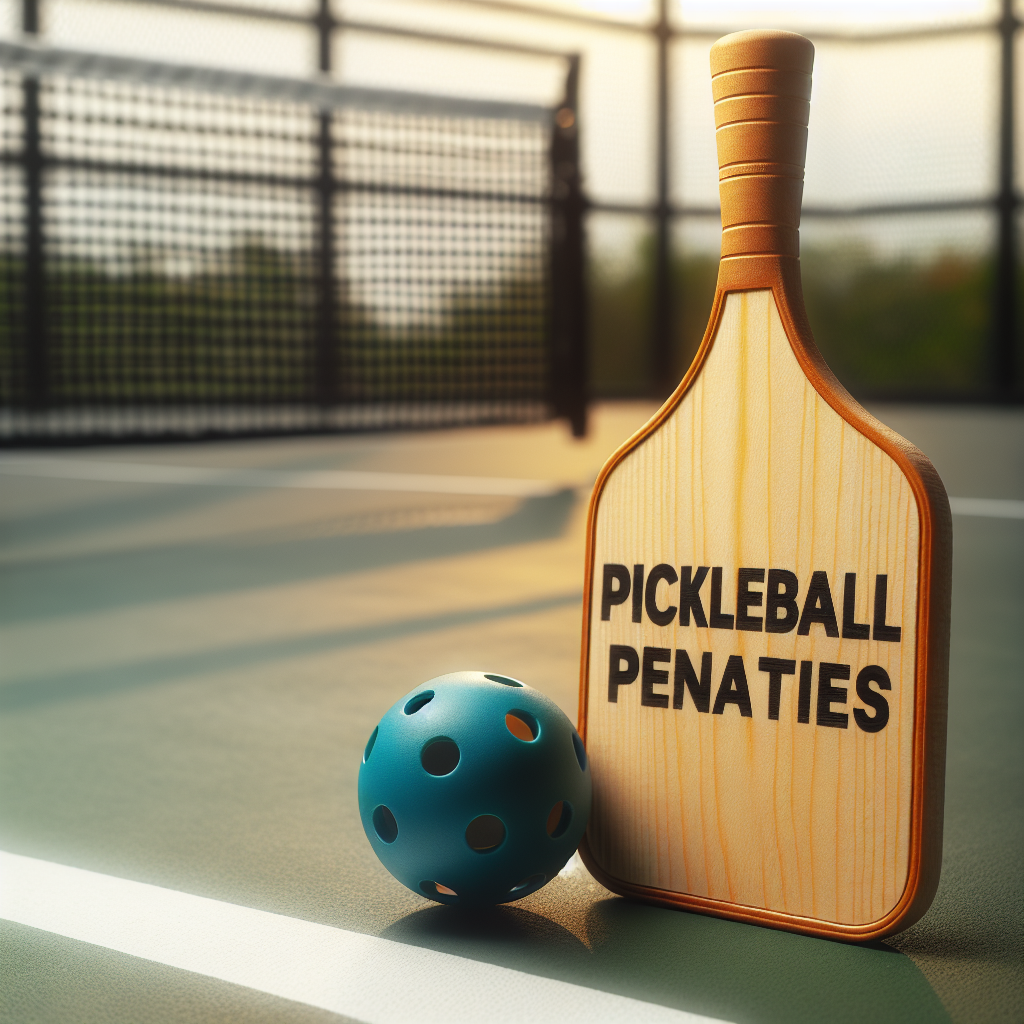Have you ever played pickleball and wondered what the rules are for penalties? In this article, we will uncover the important regulations surrounding penalties in pickleball. From foot faults to improper serves, knowing the rules will not only enhance your game but also ensure fair play. So, let’s dive into the world of pickleball penalties and find out what you need to know to stay on top of your game.
General Overview
Pickleball is a popular and fast-paced racket sport that combines elements of tennis, badminton, and ping pong. As with any sport, there are rules and regulations that players must adhere to. One important aspect of pickleball is understanding the penalties that can be incurred during gameplay. Penalties are enforced to maintain fairness, ensure player safety, and promote good sportsmanship. In this article, we will provide a comprehensive overview of the various penalties in pickleball, including their definitions, consequences, appeals and disputes, and specific scenarios like double faults, unintentional faults, delay of game, repeat offenses, unsportsmanlike conduct, and penalty points.
Definition of Penalties in Pickleball
Penalties in pickleball refer to the consequences that a player may face for violating the established rules and regulations of the sport. These penalties are put in place to maintain fair play, discourage unsportsmanlike behavior, and ensure an enjoyable experience for all participants. Understanding the different types of penalties and their ramifications is crucial for any pickleball player who wants to compete within the boundaries of the game.
Faults and Penalties
Foot Faults
A foot fault occurs when a player steps on or over the baseline or sideline before striking the ball during a serve or return. It is essential to have proper foot placement to maintain fairness in the game. The consequences of a foot fault include the loss of the rally, meaning that the opposing team wins the point, and the serving opportunity is forfeited to the other team.
Illegal Serves
Illegal serves are serves that fail to meet the specific requirements outlined by the official pickleball rules. These requirements include keeping both feet behind the baseline, striking the ball below waist level, and hitting the ball underhand to allow it to clear the non-volley zone. If an illegal serve is committed, the serve will be deemed a fault, resulting in the loss of the rally and the opportunity to serve.
Volley Zone Violations
The non-volley zone, also known as the kitchen, is a designated area near the net where players are prohibited from volleying the ball. Violations occur when a player enters the non-volley zone and volleys the ball before it bounces. Volley zone violations result in the loss of the rally and a point awarded to the opposing team.
Out of Bounds
When a ball lands outside the designated boundaries of the pickleball court, it is considered out of bounds. Out of bounds shots are counted as faults, resulting in a loss of the point. It is crucial for players to understand the court boundaries and ensure that their shots remain within the designated lines.
Double Bounce
After the serve, each team must allow the ball to bounce once on each side before volleys can occur. If a player volleys the ball before both teams have had a chance to let it bounce, a double bounce fault is called. In this case, the opposing team wins the rally and is awarded a point.
Inadvertent Hits
Inadvertent hits occur when a player unintentionally hits their partner, opponent, or any part of the net or posts with their paddle or body. While accidental, these hits are still considered faults, resulting in the loss of the rally and a point awarded to the opposing team.
Non-Volley Zone Faults
Apart from volley zone violations, additional faults can occur within the non-volley zone. Some examples include touching the kitchen lines with any body part or the paddle, hitting the ball while both feet are inside the non-volley zone, or volleying a ball that has not yet passed beyond the non-volley zone. These faults lead to the loss of the rally and a point awarded to the opposing team.
Hitting the Ball Out
Hitting the ball out refers to striking the pickleball with excessive force or imprecision, causing it to go beyond the designated boundaries of the court. When a player hits the ball out, a fault is called, resulting in the loss of the point.
Equipment Violations
Pickleball equipment, including paddles and balls, must comply with specific regulations to ensure fair play. Any violation of these rules, such as using an unapproved paddle or a ball that does not meet the official standards, will result in a fault and the loss of the rally. Players should always ensure that their equipment is in accordance with the established guidelines.
Carried or Spun Balls
Carrying or spinning the ball occurs when a player’s paddle or body makes contact with the ball and causes it to be carried, lifted, or excessively spun. These actions are considered faults, resulting in the loss of the rally and a point awarded to the opposing team.
Consequences and Procedures
Fault Consequences
When a fault is committed, the opposing team is awarded a point, and the serve is forfeited to them. The team that committed the fault loses the opportunity to score on that particular rally. Fault consequences are an integral part of maintaining the fairness and integrity of the game.
Fault Procedures
In the event of a fault, the opposing team is entitled to a point and the subsequent serve. It is crucial for players to acknowledge their faults and allow the game to proceed smoothly. Adherence to fault procedures contributes to a sense of sportsmanship and fair play within the pickleball community.
Appeals and Disputes
Appealing a Call
If a player believes that the referee or opponent has made an incorrect call, they have the right to appeal the decision. To initiate an appeal, calmly approach the referee or opposing player and state your case. It is important to maintain a respectful and civil demeanor while appealing a call to foster a positive playing environment.
Disputing a Call
In some situations, players may find themselves in a position where they need to dispute a call. Disputes should be handled in a respectful and sportsmanlike manner. Engage in open dialogue with the referee or opposing player, providing evidence or explaining your perspective. Remember that clear communication and fair play are essential in resolving disputes effectively.
Resolution Procedures
To resolve appeals and disputes, the pickleball community often follows a set of established resolution procedures. These procedures may involve consulting with an impartial referee or engaging in open dialogue with tournament officials. It is important to have a fair and transparent process in place to ensure that disputes are resolved in the best interest of all involved parties.
Double Faults
Double faults occur when both the serving team and the receiving team commit faults simultaneously. It often happens during the serve when both teams violate the serving rules, resulting in the loss of the rally and a point awarded to the opponents. Double faults can be frustrating but understanding the rules surrounding them is important to maintain a fair playing field.
Unintentional Faults
Unintentional faults are faults that occur without any deliberate intent or malicious behavior. These can include inadvertent hits, tripping over the baseline, or accidental violations of the non-volley zone. While unintentional, these faults still carry consequences and result in the loss of the rally and a point awarded to the opposing team. It is essential to acknowledge and learn from unintentional faults to improve one’s gameplay.
Delay of Game
Delay of game refers to any action or behavior that intentionally prolongs the game, disrupts the flow, or hinders the opposing team’s ability to maintain momentum. This can include stalling tactics, excessive time between points, or deliberate distractions. Any player found guilty of delay of game can face penalties such as loss of points, forfeiture of the game, or even disqualification, depending on the severity of the offense.
Repeat Offenses
In pickleball, repeat offenses refer to players repeatedly committing the same fault or violation. Repeat offenses can indicate a lack of understanding, disregard for the rules, or poor sportsmanship. Depending on the severity and frequency of the offense, penalties can range from warnings to the loss of points, games, or even expulsion from tournaments. It is crucial for players to learn from their mistakes and make a conscious effort to improve their gameplay.
Unsportsmanlike Conduct
Unsportsmanlike conduct encompasses any behavior that goes against the spirit of fair play, respect, and decency. This can include verbal abuse, physical altercations, racket abuse, or intentional disruption of an opponent’s concentration. Unsportsmanlike conduct not only ruins the game for others but also sets a negative example. Consequences for unsportsmanlike conduct can range from warnings to disqualification, depending on the severity of the behavior.
Penalty Points
Penalty points are awarded to a team or individual for committing repeated and severe faults, violations, or unsportsmanlike conduct. Accumulating penalty points can lead to further consequences, such as game forfeitures, expulsion from tournaments, or even suspensions. Penalty points act as a deterrent to ensure fair play and sportsmanship are maintained throughout pickleball matches.
Understanding the penalties in pickleball is essential for all players. By familiarizing themselves with the various faults, consequences, and procedures, players can enhance their gameplay and contribute to a positive and enjoyable pickleball experience for themselves and others. Remember, pickleball is not just about winning; it’s about fair play, good sportsmanship, and fostering a strong sense of community within the sport. So get out onto the court, play with integrity, and have a great time!

